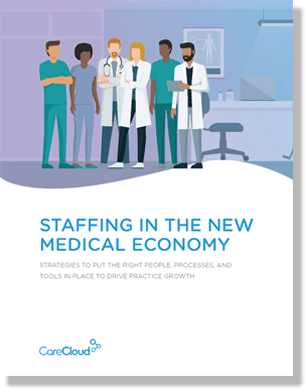From how we communicate to how we enjoy music, technology has changed the way we do almost everything – and that includes health care.
A few years ago, when I put a cassette into my Walkman, I thought: “Mobile music! It doesn’t get much better than this!” Now, my phone contains a thousand times more music — plus, pictures, videos, games, and apps — in a much more manageable format. Who saw that coming?
It’s hard to predict how changes in technology are going to affect us, that’s why these surprising uses of technology in health care are so amazing. You never know how the next breakthrough will change everything you thought you knew about health care.
Digital Medicine
Numerous studies have shown that healthcare IT solutions like electronic health records (EHR) and e prescribing can help patients better adhere to medication regimens.
Research by the New England Healthcare Institute found that patients who do not take medications as directed account for about $290 billion in preventable medical spending in the US annually.
Most research suggests that utilizing integrated EHR and e-prescribing systems will help patients be more consistent with their medications, leading to better outcomes and a lower cost of care.
Wii-Habilitation
Video games get a bad rap. In fact, according to a recently published study in the Journal of Critical Care, interactive video game systems like the Nintendo Wii and Wii Fit can be used to enhance therapy for intensive-care patients.
The study evaluated how the addition of interactive video games affects early rehabilitation in patients admitted for cardiovascular disease, respiratory failure, sepsis or other health issues.
The goal was to improve stamina and balance while helping patients stay interested in their physical therapy program.
According to Dale Needham, senior author of the study, it worked: “when properly selected and supervised by experienced physical therapists, patients enjoyed the challenge of the video games and welcomed the change from their physical therapy routines.”
Doctors Go Mobile
When I think back to the early brick-sized mobile phones, it’s amazing to think I carry around a tiny computer in my pocket today. Smartphones, tablets and mobile devices give physicians the ability to connect to patients and other constituents in real time — no matter where they are.
Doctors recognize the benefits of being mobile, as a new report from Jackson & Coker found that four out of five physicians use mobile devices in their medical practice.
The movement toward digitizing healthcare information is making the numerous apps and mobile devices a great way to integrate and streamline all aspects of the medical process for enhanced care.
“Tech-savvy physicians, especially recent graduates, increasingly rely on digital and Internet-based tools to communicate with patients and improve the medical outcomes of the care they provide,” according to Sandra Garrett, president of Jackson & Coker.
With so many new technologies changing the way health care is delivered, the question becomes: What will they think of next?



